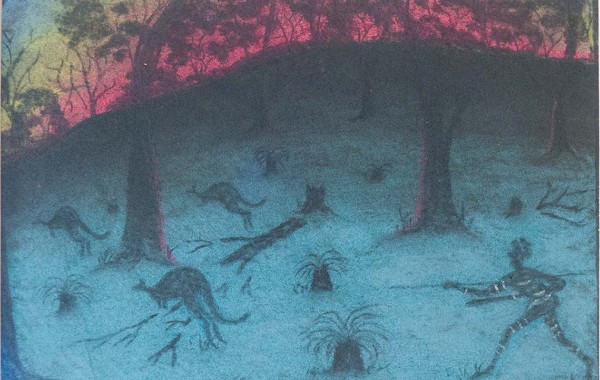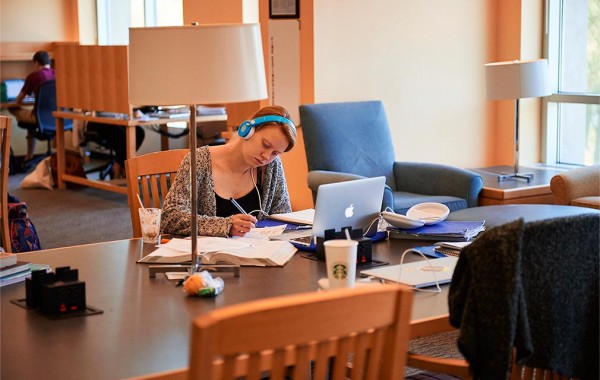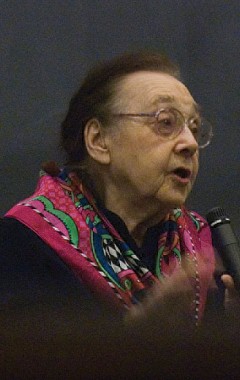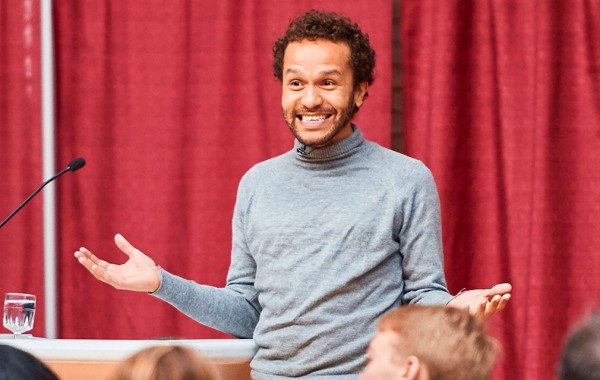Advancing science research
Colgate has been named as a Beckman Scholars Program institutional award recipient for 2016. The grant, totaling $104,000, will provide multi-year research funding for students majoring in biology or chemistry.
Colgate joins a distinguished list of universities that received the award from the Irvine, Calif.–based Arnold and Mabel Beckman Foundation.
The award “offers our top students unparalleled opportunities to engage in extended scholarship,” Damhnait McHugh, director of the division of natural sciences and mathematics, said.
To be considered for the Beckman Scholars Program at Colgate, biology and chemistry students will be required to undergo a rigorous application process in consultation with one of 13 faculty mentors. A steering committee will name one or two Beckman Scholars each year.
Beckman Scholars will receive stipend support for research, travel, and supplies during 18 months of independent research, and will present findings from their research both on campus and at national and international conferences. They will submit articles for publication by peer-reviewed journals and use their explorations as a springboard to graduate programs.
Top photo by Andrew Daddio
The power of will
Stress, sleep deprivation, and constant pressure can be a drain on even the most hardworking college student’s motivation. Last November, members of the first-year seminar (FSEM) Willpower: The Science of Self-Control, studied ways in which students can manage their workload by finding ways to motivate themselves. Then, they gave a presentation to members of the Ciccone Commons to discuss their findings.
The Ciccone Commons — the first of four residential commons to be launched at Colgate — hosts programming that provides an enriching living and learning environment where students can thrive.
As part of their project, group members Gabby Yates ’19, Charlie Rodiger ’19, Liam Emmart ’19, and Chris Munoz ’19 designed a presentation, titled “Netflix and Will,” to address procrastination and the distracting powers of various types of media, including the popular entertainment provider Netflix.
They argued that willpower is like a muscle — the more you put it to use, the stronger it gets. Their contention is that Netflix and other websites manipulate users into spending more time with their services by prompting the viewer to watch one more episode or refresh a newsfeed one more time.
While it’s important to stay focused on coursework instead of giving in to the many distractions that the Internet offers, allowing for 10-minute breaks every hour or so while studying can renew focus and prevent long periods of procrastination, the group found. Keeping that goal in mind and learning to say “no” to distractions helps to train one’s willpower, effectively making it easier to stay motivated in the future.
The group also discussed tips such as removing oneself from an enticing distraction, sleeping and eating properly, and giving yourself rewards.
A movie screening, complete with snacks and good company, followed the presentation as a well-deserved break and a demonstration of the power of a good reward.
— Kim Ravold ’19
Syllabus
POSC 390: Silent Warfare: Intelligence Analysis and Statecraft
Danielle Lupton, Assistant Professor of Political Science
MW 1:20–2:35, Persson 133
Course Description: This course introduces students to the complex and crucial process of obtaining, analyzing, and producing intelligence in the making of American foreign policy. We cover subjects including problems with the structure of the intelligence community, covert action, psychological and bureaucratic constraints on analysts and policy makers, and how the intelligence community has responded to key threats. This course also explores the ethical issues raised by intelligence gathering, such as the use of enhanced interrogation techniques, the role of whistleblowers, and accountability of the intelligence community.
Key assignments: Analysis of an intelligence agency: Students identify challenges facing an agency and provide solutions. Active learning: Students conduct research on themselves based on publicly available data and write a report regarding the ethics of open-source intelligence based on their findings. Final paper: in-depth investigation into a major intelligence failure, its causes, and ways to prevent such failures in the future.
The professor says: “Students will gain a deeper understanding of the inter-workings of foreign policy. We engage with critical issues that affect not only policy makers, but also each of us as individuals, such as the use of drones to combat terrorism, the rise of increased domestic surveillance, and the ethics of enhanced interrogation techniques.
“We focus on dissecting problems facing the intelligence community as well as providing solutions to those problems. Using this approach, students can apply the skills developed through discussions and written work to any area of analysis in the future.”
Achievements and accolades

Professor Ellen Percy Kraly was honored by Curtin University in Western Australia for returning Noongar aboriginal artworks — including this painting (Hunting, Reynold Hart) — to their homeland. Photo by Andrew Daddio
Through continued scholarship, Colgate professors keep at the top of their fields. Within the past year, numerous faculty members have been recognized for their achievements. Here are some recent highlights:
- Ellen Percy Kraly (geography, environmental studies) received an honorary doctorate from Curtin University in Perth, Australia, in recognition of her work returning Noongar aboriginal art to Australia. In February, she addressed graduates of the university’s School of Media, Culture, and Creative arts; School of Art and Design; and Centre for Aboriginal Studies.
- Michael Hay (computer science) was awarded a $500,000 data security contract. The Defense Advanced Research Projects Agency (DARPA) awards program challenges people to develop systems that will facilitate data analysis while preserving individual privacy. Hay and his team of student researchers will help in designing the system architecture, coding a prototype, and collaborating with other project teams to integrate that prototype into a larger system.
- Margaret Maurer (English) received the 2015 Textual Cultures prize for her essay “The Text of Good and John Donne’s Itinerary in April 1613.” The award is given to the best article published in the Society of Textual Scholarship’s journal, Textual Cultures.
- Alice Nakhimovsky (Jewish studies, Russian and Eurasian studies) was given the National Jewish Book Award for Dear Mendyl, Dear Reyzl: Yiddish Letter Manuals from Russia and America. The award was in the category of Anthologies and Collections.
- Heather Roller (history) received the 2015 Howard Cline Memorial Prize for her book Amazonian Routes: Indigenous Mobility and Colonial Communities in Northern Brazil. The award is given for the book or article judged to be the most significant contribution to the history of indigenous people in Latin America.
– Emma Loftus ’16
Remembering Helen Sperling
Holocaust survivor and educator Helen Kacenelenbogen Sperling died on December 3 in New Hartford, N.Y., at the age of 95. Many in the Colgate and Hamilton communities knew Sperling from her numerous speaking visits on campus over the past decades.
Sperling was born in Otwock, Poland, outside of Warsaw. She and her family were arrested by the Nazis in 1939, and after time in the Warsaw ghetto, she was sent to Nazi concentration camps. After she was liberated by the U.S. Army in 1945, she spent three years as a hospital patient in Munich before she emigrated to the United States. In 1952, she married Leon Sperling, also a Holocaust survivor, and in 1956 they moved to New Hartford, where they raised their children.
In 1967, Sperling began to lecture publicly about her Holocaust experience. In the mid-1970s she became close friends with Terrence Des Pres, an English professor at Colgate and author of The Survivor: An Anatomy of Life in the Death Camps. Shortly thereafter, Sperling began her 40 years of speaking at Colgate. Her testimony became part of various courses in the departments of philosophy and religion, peace and conflict studies, and English.
In 2000, Sperling was awarded an Honorary Doctor of Humane Letters to a standing ovation from the graduating class. So deeply affected were students and faculty by her survivor story that some of them planted lilacs (her father’s favorite flower) in memory of her family at the Saperstein Center for Jewish studies.
A gifted teacher and storyteller, Sperling was a remarkable person whose life-affirming spirit defined her public work. Her friends estimate that she spoke to more than 200,000 students in her life — to schools, colleges, churches, and even police academies.
When she spoke at Colgate, Sperling insisted that we must continue to bear witness to the great capacity of humans to do evil. But at the same time, she implored us to recognize the deep human resources for human dignity and goodness. The final message of her talks was that one must act in the world for the sake of any people in peril. Sperling’s last talk to any audience was at Colgate, this past October 15. As usual, students lined up to give her a hug and thank her at the end of her address.
— Professors Peter Balakian and Steven Kepnes; a formal obituary is in this issue’s In Memoriam section
Live and learn: SophoMORE Connections
The sophomore class experienced one of the many amazing opportunities Colgate offers students when it comes to figuring out what the heck we are going to do after graduation. During the January SophoMORE Connections, a weekend to remember, many alumni traveled back to campus to help bring us closer to deciding a career path.
My classmates and I were unsure of what to expect. We anxiously talked about the pantsuits that our moms made us buy and if we actually had to wear them — as well as how nervous we were to confront what everyone has been talking about these days: “networking.” This new and uncharted territory was daunting. However, the weekend turned out to be one of the most positive experiences of our college careers thus far. Not only did we realize that we could forgo that dreadful pantsuit, but also that the weekend was going to be much more comfortable than we had imagined.
The alumni were approachable and excited to assist us through this intimidating process, and they helped make the sessions something that we wanted to attend — and enjoyed. Topics ranging from business and consulting to art and sustainability were talked about in panels, allowing students to explore different interests.
The keynote speaker, Sian-Pierre Regis ’06 (Swagger founder and pop-culture/social contributor to CNN/HLN), talked about a gut feeling that he encouraged us to look for when choosing a career. What I took away from this weekend was to do what you love. I learned that failure is not only OK, but also necessary to succeed. If all goes well, hopefully I will be the one talking to Colgate students in the future, motivating them to find their passion just as alumni did for me.
— Meghan Sadera ’18; a longer version was first published on Hercampus.com









